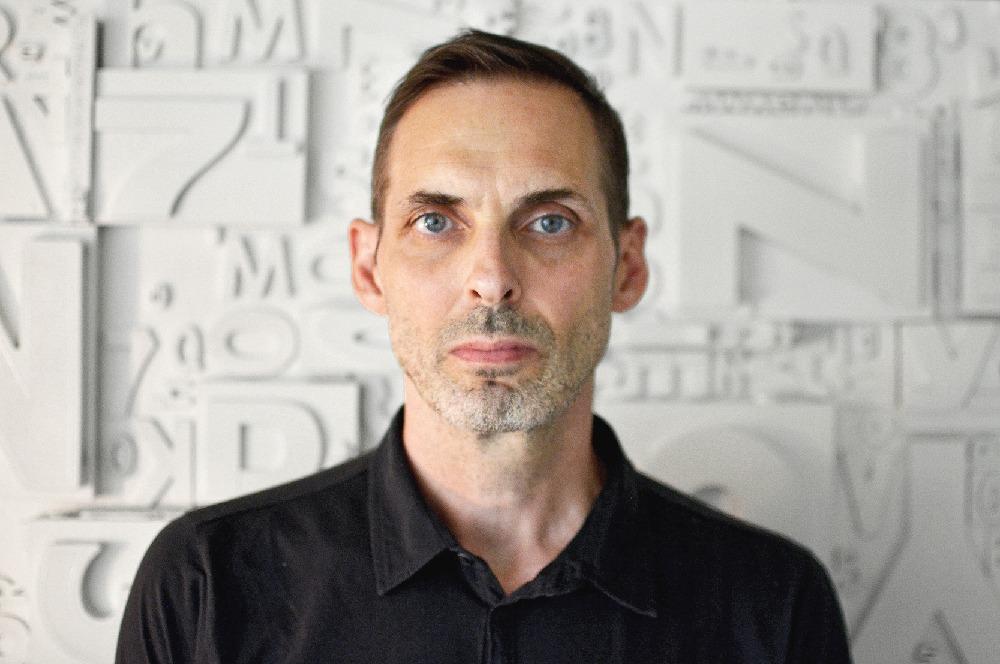Individuals 50 of 6,026 results
Organisations 50 of 8,137 results
Buzzes 50 of 13,509 results
Reckitt: Sustainability Report 2024
Reckitt: Sustainability Report 2024
(https://www.reckitt.com/media/zdzpmgsz/reckitt_sustainability-report-2024.pdf)
Delivering a cleaner, healthier world
Contains sections on:
- Sustainability at Reckitt
- More sustainable brands
- Healthier planet
- Fairer society
Liontrust: Enhancing data centre efficiency for a Sustainable Future
Liontrust: Enhancing data centre efficiency for a Sustainable Future
Increased use of digital content, faster connectivity rates, the Internet of Things and now demand from AI are all driving demand for data centres. Data centres are where most of our digital information ultimately is stored and where, increasingly, much of the computational power takes place to carry out computing tasks. They represent a key component of the infrastructure we inadvertently rely on when using our phones and computers.
We have researched how we can invest behind businesses which can make these data centres more efficient in terms of energy use and associated emissions many times in the past two decades. The easiest way for businesses to improve the energy efficiency and reduce the carbon intensity of their computing needs is by moving their servers off premises into a larger, more efficiently run data centre and optimising server utilisation through the use of virtual servers which ensure the system is more efficient.
Newton: The evolution of our themes
Newton: The evolution of our themes
(https://www.newtonim.com/uk-institutional/insights/articles/the-evolution-of-our-themes/)
Newton's themes continue to evolve:
- Micro theme groups: Internet of Things, Smart Everything, Tectonic Shifts, Picture of Health & Natural Capital
- Macro themes: Big Government, Evolving Trade, Financialisation, Great Power Competition and Human Capital
Newton: Unpacking ultra-processed foods (podcast)
Newton: Unpacking ultra-processed foods (podcast)
(https://www.newtonim.com/uk-institutional/insights/audios/unpacking-ultra-processed-foods/)
Christopher Gardner, professor at Stanford University, and Richard Mattes, professor at Purdue University, join Newton Specialist Research Team to set the table on ultra-processed foods (UPFs), digging into health implications, regulatory challenges, and the role of UPFs in the Western diet.
Redwheel: Long-Term Investors See Value in the Renewables Space
Redwheel: Long-Term Investors See Value in the Renewables Space
Over the past few quarters, investors in the renewables power generation sector have pushed down valuations, questioning growth and return opportunities following a confluence of headwinds. However, while the stock market remains sceptical, we have seen private equity firms, utilities and renewables companies themselves conclude that valuations are now too attractive to ignore. We believe that this highlights the attractive buying opportunities that can currently be found in the renewable power space.
Redwheel: The US electrification revolution and what it means for investors
Redwheel: The US electrification revolution and what it means for investors
(https://www.redwheel.com/uk/en/institutional/insights/shock-to-the-system/)
The US power sector is on the cusp of a profound transformation, driven by surging demand for electricity. This seismic shift is creating multi-decade opportunities for investors, particularly those with a focus on grid modernisation, digitisation, and decarbonisation.
Article addresses:
- Accelerating power demand
- What's driving this surge?
- Building the future: Challenges and opportunities
- A structural growth opportunity
- Meeting demand growth
- Investing in a dynamic and expanding investment opportunity
Schroders: Global developments in sustainability regulation
Schroders: Global developments in sustainability regulation
The quarterly regulation update outlines the key developments in sustainability regulation globally. The primary focus is on sustainability policy milestones as well as consultations that will result in rules shaping the investment industry in the future.
Stewart Investors: The importance of stewardship when selecting companies
Stewart Investors: The importance of stewardship when selecting companies
- We believe the quality of people behind a business has the greatest bearing on its long-term success or failure.
- We have found through time that one of the surest ways to lose client money, is by handing it to people who do not have as their prime focus, the long-term performance of their company and minority shareholders who are along for the ride.
This article gives examples of:
- Portfolio holdings across a range of ownership models, all with exceptional cultures
- What makes us change our minds on stewardship and
- Where we’ve made mistakes
Scandi Standard: Integrated Report 2024
Scandi Standard: Integrated Report 2024
Broad overall growth throughout the Group
Both Ready-to-cook and Ready-to-eat, Scandi Standards' largest segments, grew significantly during the year, which led to good growth. Earnings increased due to strong underlying growth and demand for chicken and a diversified customer base with higher profitability.
Scandi Standard Baltics
Scandi Standard's acquisition in Lithuania strengthens the overall operations and accelerates the achievement of the financial targets and meeting future customer demand. Increased control in the value chain allows Scandi Standard to achieve cost efficiency, combined with the company's high standards in quality, animal welfare, sustainability, food safety, and antibiotic usage.
Sustainability-linked financing
Scandi Standard signed a sustainability-linked loan to refinance existing bank financing and support long-term growth. The financing creates financial flexibility that allows the company to realise the organic potential set out in the financial targets and to simultaneously participate as a consolidated operator in existing and new markets.
New climate targets and the CDP A-list
The Science Based Targets initiative approved Scandi Standards' new short-and long-term climate targets, which now include emissions according to the Forest, Land, and Agriculture (FLAG) standard. The company's climate work also received external recognition through a place on the investor rating CDP's A-list for climate."
Givaudan: Integrated Report 2024
Givaudan: Integrated Report 2024
(https://www.givaudan.com/files/giv-2024-integrated-report.pdf)
Our Integrated Report on economic and ESG performance serves as a comprehensive disclosure of financial and non-financial information. While it is relevant to all our stakeholders, its primary focus is on shareholders, investors, and ESG analysts.
The report's content is chosen according to Givaudan's corporate strategy and materiality assessment. It includes information that is required by current reporting obligations or commitments, and is considered material or decision-relevant to the company and its stakeholders.
Shell: Integrated Annual Report 2024
Shell: Integrated Annual Report 2024
(https://www.shell.com/investors/results-and-reporting/annual-report.html)
For the first time, the Report includes a Sustainability Statements section, prepared in accordance with the European Union’s Corporate Sustainability Reporting Directive (CSRD) and European Sustainability Reporting Standards (ESRS). With the introduction of the Sustainability Statements (pages 341-440), Shell has retired its voluntary Sustainability Report after 27 years.
Henkel: Sustainability Report 2024
Henkel: Sustainability Report 2024
The Henkel Sustainability Report covers the key ecological and social developments in fiscal 2024. The contents of this report reflect the Henkel-relevant and material challenges of sustainable development.
Smiths Group: Sustainability Report 2024
Smiths Group: Sustainability Report 2024
(https://www.smiths.com/sustainability/sustainability-report)
"Our Sustainability at Smiths report provides a holistic view of how we are performing and creating value for our customers, our colleagues and our communities. We report against our Sustainability at Smiths ESG framework to complement our financial reporting and to help structure and share our performance across a range of non-financial ESG metrics of interest to many of our stakeholders."
PRI: PRI report - analysis of the 2024 reporting data
PRI: PRI report - analysis of the 2024 reporting data
(https://www.unpri.org/download?ac=23004)
KEY POINTS
- Changing political backdrop; 2024 Billion people at elections;
- Climate risk continues to emerge;
- SDGs missed 3,048 signatories, representing $89trn; 88 countries; largest global survey (pg 9) Third annual survey
FINDINGS
- A positive global message - despite the changing politics, signatories have continued to develop their policies, practices and processes dealing with climate and human rights.
- A focus on fiduciary duty - the C-Suite's leading motivation for action on sustainability is value creation.
- Asset owners are ramping up action - assessment of investment managers is becoming more granular and increasingly integrated into contractual arrangements. Escalation, collaboration and climate commitments are all activities where AOs lead the way.
- Innovation among private markets LPs and GPs is widespread – from investing in the energy transition to working with portfolio companies, LPs and GPs are developing different innovative approaches to approaches to sustainability.
- The C-Suite at our signatory’s consider climate change the #1 issue. It is put into practices through climate policies, capital allocation and stewardship practices.
AREAS FOR WORK
There are a couple of areas which get the ‘More effort required’ grade - these include putting the UN Global Principle’s into action, introducing formal practices around managing climate related risk, supporting the Paris Agreement, disclosure of rationales for proxy voting and utilising climate metrics.
Oxfam Novib: Fair Finance Guide - International Methodology 2025
Oxfam Novib: Fair Finance Guide - International Methodology 2025
(https://hwkvufmtfxjkrhbrfqkj.supabase.co/storage/v1/object/public/PUB/ffgi-methodology-2025.pdf)
A methodology to assess the sustainability policies of financial institutions
Oxfam Novib has commissioned this report on behalf of the Fair Finance International network of civil society organisations.
It presents a methodology that is used to assess and rank financial institutions’ finance and investment policies regarding their principles on sustainable development and responsible business conduct.
The methodology is developed by Profundo together with the civil society organisations collaborating in Fair Finance International and is based on international standards and initiatives.
Feedback/GSFR: Fishy Finances - Exposing industrial salmon farming’s biggest financial backers
Feedback/GSFR: Fishy Finances - Exposing industrial salmon farming’s biggest financial backers
This report identifies industrial salmon farming’s biggest financial backers and exposes the deeply troubling role global financiers are playing in creating a food production system – salmon farming – that is harming people’s food security, health and livelihoods, as well as extracting a huge toll on the environment....
- Our analysis shows that between January 2015-November 2024, international financiers channelled tens of billions of dollars into leading salmon farmingcompanies in the form of investments or credit.
- The top 5 creditors were: Nordea (US$4.5 billion), DNB (US$ 4.3 billion), Danske Bank (US$2.6 billion), Rabobank (US$1.8 billion) and ABN Amro (US$1.3 billion).
- The top 5 investors as of November 2024 were: Government Pension Fund Norway (US$1.7 billion), BlackRock (US$0.8 billion), Storebrand (US$0.6 billion), Vanguard (US$0.6 billion) and Nordea (US$0.5 billion)
- Three companies, Mowi, SalMar and Bakkafrost, were the biggest recipients of both investment and credit.
SII/FSI: RFP on Anthropogenic methane emissions – opportunities for investor action
SII/FSI: RFP on Anthropogenic methane emissions – opportunities for investor action
SII/FSI seeks a research provider to conduct research and produce a report outlining key sector-specific drivers of anthropogenic methane emissions and investor-relevant mitigation pathways.
.
.
This report will provide a high-level, investor-relevant analysis outlining the opportunities and challenges to methane mitigation in key contributing sectors, including:
- oil and gas
- coal mining (open-cut and underground)
- agriculture
- waste/landfills
[... and address ...] policy and regulatory frameworks; and identifying avenues for investor action.
.
Proposal guidelines:
In your proposal, please include the following information:
- Proposed research methodology
- The proposed scope of the research
- Proposed relevant publications to be used as literature review
- Proposed report structure
- Proposed timetable for execution of the project, including intended interaction with the Institute and report reviews. Please indicate the earliest project complication.
- Proposed fees and costs
- Short biographies or skills profile of the proposed team members
.
Proposed timelines:
- This RFP is issued on 26.03.2025
- Any questions or feedback regarding the brief should be submitted by 04.04.2025
- Answers to any questions will be provided by 11.04.2025
- Proposal should be submitted to the Institute by 18.04.2025 together with availability for a 1 hour call to discuss the proposals in the week of 21.04.2025
- Target for notifying the successful tenderer by 02.05.2025
Nuveen: Growing renewable fuels market continues to shape U.S. soybean demand
Nuveen: Growing renewable fuels market continues to shape U.S. soybean demand
Policy frameworks to support the decarbonization of the transportation sector are driving growth in renewable fuels markets, increasing demand for U.S. soybeans as a sustainable input to production. As the renewable fuels market continues to develop and grow, led by California, new opportunities for U.S. farmland investors are emerging.
In this paper, we examine policies that incentivize renewable fuel production in the U.S. and focus on the recent rise in renewable diesel production, which has grown from 533 million gallons in 2020 to a projected 3.2 billion in 2024. We analyze soybean oil’s use as a renewable diesel feedstock and the additional demand that has created for soybeans and the agricultural land they are grown on.
MIT: Powering the food industry with AI
MIT: Powering the food industry with AI
(https://wp.technologyreview.com/wp-content/uploads/2025/03/MITTR-25RevvitySignals_V9_03172025.pdf)
This report draws on seven in-depth interviews with senior executives and experts. It seeks to understand how the food industry can use AI to help meet the increasing global demand for nutritious, affordable produce, ensure resilient supplies, and minimize its effects on the environment.
Mike's mic: Actually, sustainable investment / ESG works …
Mike's mic: Actually, sustainable investment / ESG works …
… for investors, companies and the research providers that support them ...
... if we all just keep calm, keep aligned to mainstream practice and keep learning!
There are many reasons to be negative about the outlook for sustainable investment & ESG as the industry is destructively battered in different ways by both the American right and the European left.
However, for those investors and companies that can keep their 'eye on the prize' and focus on the act of making better investment decisions and being better owners of companies through high-quality, well-directed and efficient information-sharing, there are rewards to be gained.
What's happening on the ground
Rather than puff further, let me share (in five bullets) some facts about a meeting that I participated in yesterday and let you draw your own conclusions.
- Finnish stainless steel company, Outokumpu, presented its sustainability strategy to 24 sustainable investors and analysts comprising an even balance of asset managers and investment research providers and an even balance of 'sustainability specialists' and 'mainstream’ investors and analysts.
- The company's Head of Investor Relations and VP Sustainability presented the company's approach to sustainability. Importantly, they described both the market context* in which they operate and their recent performance and their future plans.
- Investors and analysts then pressed the companies for answers to questions on topics of material sustainability and investment relevance: carbon pricing, CBAM, scrap availability, investment and return requirements for net zero targets and biodiversity.
- In giving answers, the company was able to describe what could be done within its own scope of authority, what depended on partnerships or markets and what depended on regulation.
- The whole call took an hour and - I believe - everyone went away having learned about the industry and each other's needs and priorities. As a result, investors are better able to make investment or stewardship decisions about the company and the company is better able to find more sustainable investor capital - from other investors interested in energy transition and circularity.
… and most importantly, it reminded me about how & why being an integrating sustainable investment analyst is the absolute best job in the world … and one that I will definitely go back to one day (… once I have fixed all of the communications inefficiencies in the value chain!)
(* This 'context' bit is so so so important and - if done well (as yesterday) prevents almost all of the problems that companies face when dealing with ESG. Yep. The problems companies face very very rarely arise from the data itself; they almost always arise from analysts' understanding of how to contextualise that data).
Equally important - in the context of where sustainable investment / ESG currently finds itself politically, here is what didn't happen:
- Investors and analysts didn't - in any way - micromanage, interfere with or nanny the company on anything. They left the company to infer (from the questions that they asked) what they consider to be important for investment decision-making … much like in 'mainstream investment' in fact
- There was no collaboration or collusion by investors ahead of the event … just as there isn't in 'mainstream investment'
- The topics didn't stray into meaningless detail about irrelevant issues - it stayed focused on the material issues … just as 'mainstream investor' meetings do
One improvement
The one thing that I would love to see - ahead of these meetings - is research published by sustainable investment research providers that help their investor clients understand the relevant issues and the key unknowns / variables.
This would - IMHO - improve further the quality of the meeting (for everyone) and be a significant value-add by research providers.
One question
Every company that I have ever worked with on meetings like this find them to be highly-constructive, highly-efficient, wholly-uncontroversial ways of helping investors understand their approach to sustainability ...
Importantly - for the current times - they don't require intricate reporting or collaboration or acronyms or ... as it turns out ... anything other than a Zoom account and an hour to spare.
So, here's my question for you: Why doesn't every company do it? Every year?
Integrum ESG: Holding Fashion Accountable
Integrum ESG: Holding Fashion Accountable
What you need to know about California Fashion Act
... includes:
- Introduction
- Which companies does AB 405 target?
- What will in-scope companies have to do?
- What happens to non-compliant companies?
- How are companies currently performing?
- Featured companies: adidas, Burlington Stores, Gap, Kering, Lululemon Athletica, LVMH, Nike, PVH Corp, TJX Companies, VF Corp
Integrum ESG: Untangling Financed Emissions
Integrum ESG: Untangling Financed Emissions
(https://mailchi.mp/10028697107d/financed-emissions-mar-2025)
A comparison of 10 publicly listed asset managers and their financed emissions featuring:
- Northern Trust Corp
- M&G
- Janus Henderson Group
- Ameriprise Financial
- Azimut Holding
- Nomura Holdings
- Apollo Asset Management
- IGM Financial
- Polar Capital
- Eurazeo
Robeco: Breadth and depth make water an attractive long-term investment
Robeco: Breadth and depth make water an attractive long-term investment
In contrast to the drama and excitement of AI, water investments can seem calm and placid. But while markets are enamored with AI’s potential, long-term growth opportunities into water infrastructure go quietly unnoticed.
Summary
- Water is a strong, stable but sometimes underappreciated theme
- Diverse structural trends are driving water infrastructure investments
- Robust, multi-year investment cycles support long-term growth
Regnan: Navigating Climate Strategy Amid Regulatory Turbulence
Regnan: Navigating Climate Strategy Amid Regulatory Turbulence
(https://regnan.com/uk/navigating-climate-strategy-amid-regulatory-turbulence/)
By now, the urgency of climate change is clear. Yet, despite rising global temperatures, extreme weather events, and increasingly dire scientific warnings, policy momentum appears to be slowing. Regnan’s Oshadee Siyaguna, Senior Thematic Investment Analyst, provides insight into the complex dynamics shaping climate strategy amid regulatory turbulence.
-
Global Climate Governance Under Threat: Recent U.S. policy reversals on greenhouse gas regulations have sent a concerning climate governance signal worldwide.
-
Economic Pressures and Climate Policy: The ongoing economic volatility, including the aftermath of COVID-19 and the Ukraine conflict, have intertwined with climate policies, making emission reduction efforts appear as additional burdens during difficult economic times. This has led to social unrest and protests globally.
-
Societal Tensions and Protests: While many protests demand stronger climate action, there is a notable rise in anti-climate demonstrations, particularly among labour groups. This highlights the need for equitable frameworks to address the social dimensions of transitioning industries.
-
Corporate Strategies Amid Uncertainty: Companies are recalibrating their climate commitments due to policy turbulence.
-
The Inevitability of Policy Action: The concept of an inevitable policy response to climate change is challenged by public awareness and political will. Delaying action until impacts become undeniable risks reaching critical tipping points.
- Navigating an Uncertain Future: Escalating physical impacts from climate change are compressing risk timelines. Policymakers must adapt with inclusive policies addressing socio-economic impacts on transforming communities.
-
A Call for Nuanced Action: Effective climate strategies must acknowledge complex economic realities and societal dynamics. The path forward requires recognising these complexities and taking decisive yet equitable action.
Planet Tracker: Plastic Banks: Assessing European retail banks' attitude to Plastic Risk
Planet Tracker: Plastic Banks: Assessing European retail banks' attitude to Plastic Risk
(https://planet-tracker.org/wp-content/uploads/2025/03/Plastic-Banks.pdf)
Companies in the plastic industry should have one of the longest risk registers of any sector. European retail banks financing plastics, along with their investors are financially exposed to these plastic-related risks. In this report, we use natural language processing to examine how major European retail banks talk about plastics and whether they consider plastic pollution risk as part of their lending criteria.
Our research suggests that most of the 30 largest European retail banks have minimal or non-existent policies specifically addressing (mitigating) plastic use, management, and reduction in their investment decisions. Financial institutions should be contemplating the probability of substantial liabilities and pushing investee banks to develop robust plastic-related policies for lending decisions.
IIGCC: Climate Resilience Investment Framework
IIGCC: Climate Resilience Investment Framework
This CRIF has been developed for investors that wish to consider how physical climate risks may require enhanced management to accurately assess an asset’s financial returns. Better management of physical climate risks from a financial materiality lens can help investors:
- Improve the financial resilience of both individual assets and portfolios.
- Help investors contribute to building resilience within the real economy, by direct investment, engagement and stewardship.
- Identify investment opportunities associated with adaptation solutions.
- Build the case for strategies managing transition risks (which are needed to mitigate the causes of increasing physical climate risks).
The focus of this framework is to support investors to manage financial risks arising due to physical climate risks to their own individual portfolios.
Boston Common AM: Artificial Intelligence Investment Risks and Opportunities: 2025-2030
Boston Common AM: Artificial Intelligence Investment Risks and Opportunities: 2025-2030
(https://bostoncommonasset.com/ai-investment-risks-and-opportunities/)
Artificial Intelligence (AI) is rapidly becoming a transformative force across the global economy. The advent of advanced AI, including generative models like ChatGPT, has spurred innovation in virtually every sector—from finance and healthcare to manufacturing and retail—promising increased efficiency, new products and services, and substantial value creation. Investors are eager to capitalize on this AI-driven growth but must also navigate the complex risk landscape accompanying such technological, social, and possible geopolitical change.
For investors, understanding AI’s risks and opportunities will be essential to making informed decisions. This report provides an overview of AI-related risk and opportunity over the next five years, focusing on:
- Economic Growth
- Energy and Supply Systems Transition
- Environmental Impact
- New Regulation
- Security and Accountability Risks
- Socio-economic Upheaval
- The Geopolitical “AI race”
LSEG: Why sustainable equity investors should pay close attention to Singapore
LSEG: Why sustainable equity investors should pay close attention to Singapore
From electric vehicles to energy-efficient data centres, the green economy is a growing global market in which many countries are trying to become leaders. With Asia playing a key role in the global green economy and Singapore acting as the region’s technology innovation and capital markets hub, the city state’s equity market merits close attention from sustainable equity investors.
- Singapore’s green revenue share in the STI reached 10.9% by end-2024, surpassing global averages and leading in sectors like energy and real estate.
- The Singapore Green Plan 2030 and sustainability disclosures make the city a competitive hub for green investment across real estate, technology, and renewables.
- Transparency in sustainability data is increasing, with new disclosure rules coming in 2025 to enhance the green economy landscape for investors.
Sompo: Sustainability Report 2024
Sompo: Sustainability Report 2024
(https://www.sompo-hd.com/-/media/hd/en/files/csr/communications/pdf/2024/e_report2024.pdf)
*Includes investment information, eg TCFD, TNFD
UBS: Sustainability Report 2024
UBS: Sustainability Report 2024
*includes investment strategy information
RFI Foundation: What do banks gain by pursuing Net Zero objectives?
RFI Foundation: What do banks gain by pursuing Net Zero objectives?
RFI Foundation: What do banks gain by pursuing Net Zero objectives?
Net zero financial institution alliances have been shaken up in recent months, with some banks, particularly those from the United States, withdrawing from alliances or pulling back on their commitments. In this context, a recent research paper explores the economic case for Net Zero banking, and explains why banks’ self-interest, quite apart from ethical obligations to stakeholders, supports continued efforts in transitioning towards Net Zero goals.
The paper highlights two key ways in which banks gain from pursuing a Net Zero objective: reducing risks (default risk in particular); and capturing opportunities for financing growth in expanding segments related to decarbonization. Within the context of reducing climate-related risks, the paper notes widespread evidence that most banks are not primarily doing this through divestment.
The decision between divestment and engagement is not across the board, but divestment is used less frequently. For example, studies have found that loan supply is impacted by banks’ prohibition of financing certain activities, often related to coal mining or coal-fired power plants, especially for larger banks.
In these situations, the impact on decarbonisation is greater when bank financing from one institution is not easily substituted by financing from another (whether due to cost or availability). This makes the decision-making process different for banks than equity investors because the latter can be more easily substituted in response to divestment than bank financing.
Banks, however, have a stronger informational advantage about their clients that has been built up over several years. More of these relationships focus on the more carbon-intensive businesses, which historically have been “fixed asset intensive, with cash flow and cash buffer properties that make them attractive for bank lending”. This makes engagement and pricing more common levers than divestment for influencing companies’ behaviour in support of decarbonisation and climate-related risk mitigation.
In some cases, the impact of pricing or updated risk evaluation by banks will result in loan rationing. Rather than being explicit decisions to undertake divestment, incorporating climate-related risk metrics can lead to a gap between the financing cost that meets the return threshold for the company and the bank’s risk appetite.
In addition to efforts to reduce risk, banks are also pursuing Net Zero efforts in order to expand their access to future financing growth by expanding with clients scaling up decarbonizing technology. Different banks will pursue different strategies around risk mitigation or pursuing opportunities for financing growth that will be relatively path-dependent on historical activities in a way that allows them to leverage their experience and footprint in particular sectors.
The greatest challenge to banks’ efforts on decarbonisation is an underlying tension around both types of Net Zero financing. Financing the decarbonisation of existing high-carbon companies can be associated with “exposure to stranded assets, green regulations, and carbon-emitting sectors [that] may mean greater risk for bank lending portfolios”. Meanwhile, financing new decarbonisation technology “might be seen as riskier, with growth orientations rather than stability properties”.
This combination can produce instability in risk properties throughout the transition. The paper concludes: “…it is possible that transition can be very risky in the short run and have lower risk in the long run”. Although the research focuses on economic incentives that drive banks’ actions in support of Net Zero, it operates within a wider context that includes the regulation of safety and soundness.
As regulators increase their focus on the impact of climate-related risks on financial stability, they will produce incentives for banks that over time help to resolve the tension in risk properties. Although this isn’t the focus of the research, which centres around economic incentives for banks to support the transition to Net Zero, the regulatory benefit of being able to demonstrate your preparation to manage climate risks is something — along with banks limiting their exposure to areas with high physical climate risk — that helps banks prepare for future policy changes and other climate-related risks.
The research around banks’ incentives in the transition to Net Zero suggests that not every bank will approach it in the same way. Each bank will approach the transition with different opportunities to pursue based on the heterogeneous characteristics of different institutions, and there won’t be a single, one-size-fits-all approach. This is likely to be particularly true with markets, such as many within the OIC, where transition risks intersect with physical risks, as well as with regulatory risks originating locally and those connected with key export markets.
Want to stay updated about the implementation of responsible finance in OIC markets & Islamic finance? Subscribe to RFI’s free email newsletter today!
abrdn: Japan's Green Transformation Policy: are investors overlooking an opportunity?
abrdn: Japan's Green Transformation Policy: are investors overlooking an opportunity?
Japan has launched a $140 billion Green Transformation Policy. Although widely accepted as a hugely significant programme, we believe that it hasn’t received sufficient attention from investors. The policy initiative could create tailwinds for a wide range of Japanese securities. It could also help promote the concept of ‘transition finance’, which provides financial support to help with decarbonisation of high-emitting activities.
The article covers the Green Transformation Policy and related investment opportunities, how it could promote transition finance, and the importance of national policies to assess and engage with companies.
Find out what this $140 billion programme means for investors
swiss finance institute: The Puzzle of ESG Fund Fees
swiss finance institute: The Puzzle of ESG Fund Fees
(https://papers.ssrn.com/sol3/papers.cfm?abstract_id=5053459)
"This paper documents that ESG funds in the U.S. charge net expense ratios that are 9.5 to 12.7 basis points lower than those of non-ESG funds.
This contrasts with the existing literature on investors' willingness to pay for ESG. The fee difference is driven by the use of waivers, which offset the higher gross expense ratios of ESG funds.
We explore three explanations consistent with these findings:
- (1) heightened competition among ESG funds exerts downward pressure on fees,
- (2) ESG funds exhibit lower expected returns, and
- (3) fund families strategically use ESG funds with low fees to cross-sell higher-fee funds."
Looking to the EV future: The expert view
Looking to the EV future: The expert view
(https://longitude.foleon.com/geotab/taking-charge/the-expert-view)
What does an electric vehicle future look like for businesses? Three EV experts discuss the big-picture opportunities of fleet electrification and tell us how organizations can kick start electrification — and get the best out of it.
Meg Wright, head of innovation at FT Longitude, explores how businesses are tackling EV fleet transition and management with:
- Charlotte Argue, Geotab’s senior manager for sustainable mobility, along with two industry thought leaders
- Oscar Delgado, center manager, International Council on Clean Transportation, and
- Rick Harland, assistant director of fleet mobility services, City of Austin, Texas.
They discuss how fleet managers are approaching the opportunities and avoiding the pitfalls of transitioning to electric, and explore what it takes to operate an EV fleet in today’s data-enabled world.
SSgA: Forward-Looking Climate Metrics in Corporate Bond Portfolios
SSgA: Forward-Looking Climate Metrics in Corporate Bond Portfolios
SSgA: Forward-Looking Climate Metrics in Corporate Bond Portfolios
"Forward-looking climate metrics—such as implied temperature rise (ITR), carbon risk rating (CRR), and climate value at risk (CVaR) covering policy, technology, and physical risks—are reshaping how many institutional investors who prioritize climate factors manage corporate bond portfolios. These measures can reveal potential future vulnerabilities and opportunities beyond conventional backward-looking data, like emissions.
This digest is based on the research paper “Integrating forward-looking climate metrics in corporate fixed-income index portfolios”. Published in January 2025 as part of the CFA Institute Research and Policy Center's Investment Innovations Toward Achieving Net Zero: Voices of Influence*, the paper explores data coverage, risk correlations, and sector impacts, helping you gauge how these metrics might influence allocation decisions."
Pictet: Tracking the energy transition
Pictet: Tracking the energy transition
It takes skills worthy of a Swiss watchmaker to fully comprehend all the moving parts involved in the energy transition.
Fossil fuel production is expected to peak by 2030, not least because of the rise of electric vehicles. This shift will drive a significant increase in electricity demand. And so will the boom in power-hungry artificial intelligence (AI), the rapid economic development of emerging countries and global population growth.
Climate change concerns mean this demand for electricity must be met with renewable energy sources like solar and wind energy, possibly also nuclear power, and not with fossil fuels. This will also be accompanied by the vast expansion of power storage systems, particularly batteries, requiring major growth in metal and mineral extraction...
Tracking the economic implications of all these elements is perhaps one of the most important challenges investors will face over the next five to 10 years, and beyond.
Jobs 50 of 298 results
JobPost: Baxter International - Senior Director, Environmental Sustainability (Illinois, US | Close unknown)
JobPost: Baxter International - Senior Director, Environmental Sustainability (Illinois, US | Close unknown)
(https://jobs.baxter.com/en/job/-/-/152/78922006528?source=rd_linkedin_jobposting)
JobPost: Goldman Sachs - Asset & Wealth Management, Private Credit, Global Head of ESG, Vice President (NYC | Close unknown)
JobPost: Goldman Sachs - Asset & Wealth Management, Private Credit, Global Head of ESG, Vice President (NYC | Close unknown)
JobPost: Goldman Sachs - Asset & Wealth Management, Private Credit, Global Head of ESG, Vice President (NYC | Close unknown)
JobPost: PRI - Senior Specialist, Sovereign Engagement (Canada) 2 Year Fixed Term Contract
JobPost: PRI - Senior Specialist, Sovereign Engagement (Canada) 2 Year Fixed Term Contract
(https://app.beapplied.com/apply/t15qbfqjfn)
JobPost: PRI - Senior Specialist, Sovereign Engagement (Canada) 2 Year Fixed Term Contract
Employment Type Contract Please note, where PRI has an office there is an expectation to work a minimum of 2 days per week
Location Hybrid · Canada Toronto, Ottawa or Montreal
Seniority Senior
Closing: 8:00pm, 6th Apr 2025 CDT
JobPost: Business Analyst, Technology & Infrastructure - PRI (London | Closing: 8:00pm, 2nd Mar 2025 GMT)
JobPost: Business Analyst, Technology & Infrastructure - PRI (London | Closing: 8:00pm, 2nd Mar 2025 GMT)
(https://app.beapplied.com/apply/kgq9uvgfan)
JobPost: Business Analyst, Technology & Infrastructure - PRI (London | Closing: 8:00pm, 2nd Mar 2025 GMT)
JobPosts: 4 @ PRI (1 x Brazil, 3 x London)
JobPosts: 4 @ PRI (1 x Brazil, 3 x London)
JobPost: TrustPilot - Group ESG Strategy & Reporting Manager (London | close unknown)
JobPost: TrustPilot - Group ESG Strategy & Reporting Manager (London | close unknown)
(https://business.trustpilot.com/jobs/6532402?gh_jid=6532402)
JobPost: TrustPilot - Group ESG Strategy & Reporting Manager (London | close unknown)
JobPost: Zurich Insurance - Climate Change & Sustainability Risk Consultant (remote | close 19 Feb)
JobPost: Zurich Insurance - Climate Change & Sustainability Risk Consultant (remote | close 19 Feb)
JobPost: Zurich Insurance - Climate Change & Sustainability Risk Consultant (remote | close 19 Feb)
JobPost: Bloomberg - Team Leader - ESG Scores, Controversies and Sustainable Fixed Income (London | close unknown)
JobPost: Bloomberg - Team Leader - ESG Scores, Controversies and Sustainable Fixed Income (London | close unknown)
(https://bloomberg.avature.net/careers/JobDetail/Team-Leader-ESG-Scores-Controversies-SFI-LDN/8197)



















